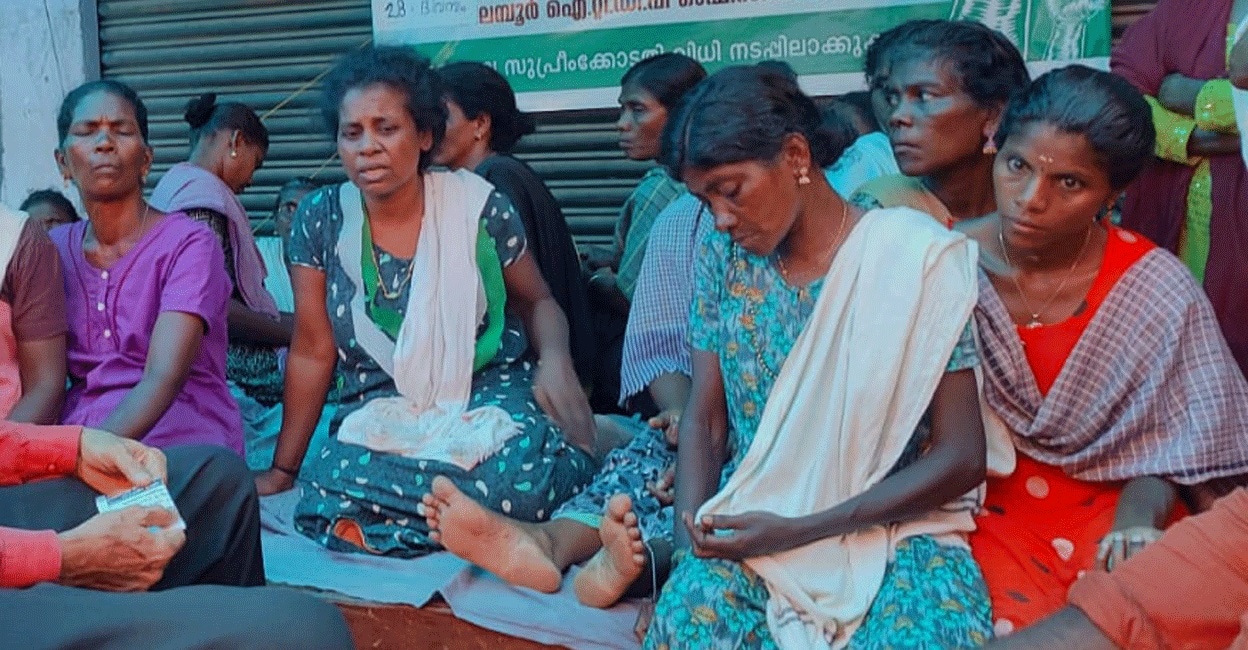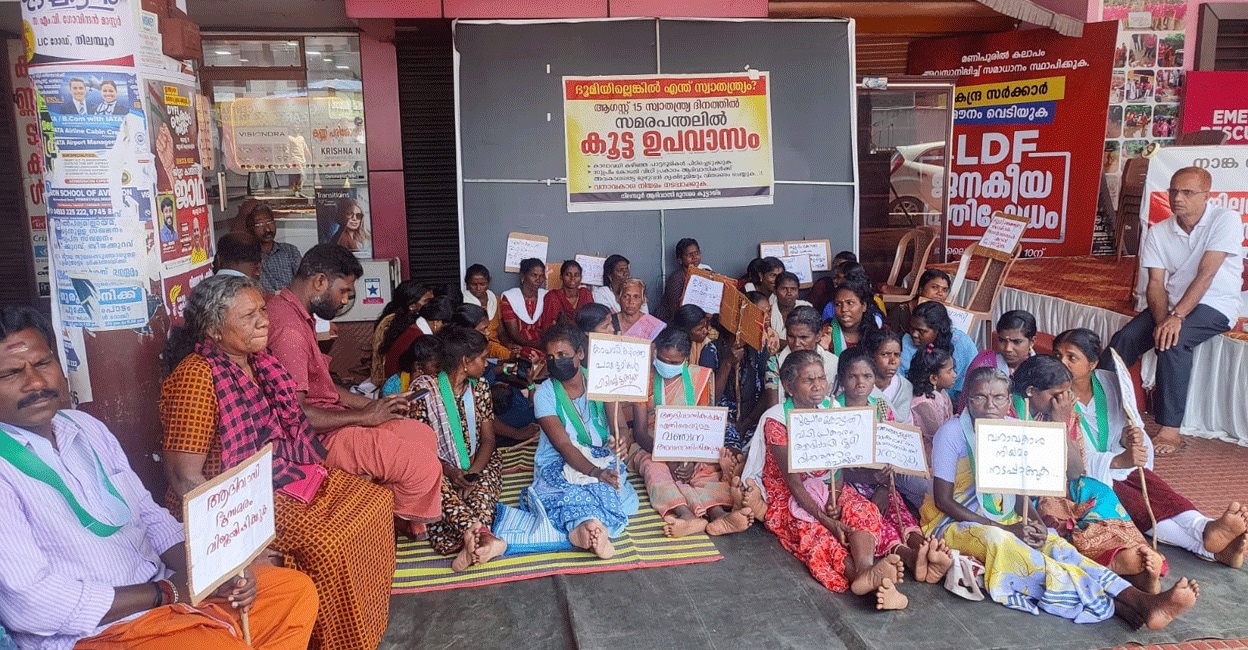Meet the Iron Lady of Nilambur whose hunger strike for landless tribals has entered 150 days

Mail This Article
Malappuram: Like Irom Sharmila, the Iron Lady of Manipur, who waged a 16-year hunger strike against the state demanding the abolition of the Armed Forces (Special Powers) Act, a tribeswoman in Nilambur, Malappuram is engaged in a selfless act of defiance for a common cause. Her hunger strike has entered its 150th day.
Bindu Vailassery, a 40-year-old daily-wage worker, is now the face of a tribal protest that began on May 10 demanding land as guaranteed by a Supreme Court order in 2009.
A bench comprising Justices S B Sinha and Mukundakam Sharma had pronounced its verdict in a case filed by tribal activist, Nalla Thamby Thera. The court directed the state government to provide the tribal communities their rightful land.
The court order also assigned the government to provide land to the landless families of the Scheduled Tribes under Section 6 of the Kerala Government Land Assignment Act, 1960 (30 of 1960) and the rules issued thereunder within a period of two years. But it has been 14 years since the verdict.
Bindu is fasting to feed others
On May 10, Bindu Vailassery joined around 200 families from various tribes in and around Nilambur in the protests with the support of various organisations. The next day, she began her hunger strike.

Incidentally, Bindu, a member of the Paniya Tribe, from the Peruvambadam Colony in the Chaliyar Panchayat, won't benefit from the court verdict should the government eventually meet their demands because she is protesting for her fellow tribespeople.
“I have land at the colony. But I am sitting here with a hunger strike for the last 150 days for the tribespeople who do not have land,” Bindu told Onmanorama.
On Friday, on the eve of her 150th day of disobedience, officials from the health department checked on Bindu who lay in a shed in Nilambur Town. They recommended that she be shifted to a hospital at the earliest, but Bindu resisted.
She has survived on liquid and glucose, but there were spells when she even refused a sip of water. That one time when her hunger strike had reached 50 days, Bindu was rushed to a hospital with her health deteriorating. After a few days, she was back in the shed continuing her hunger strike. She remains adamant.
“I am hopeful that my hunger strike would yield a result. I am really tired and have health issues. The government is answerable if anything happens to me during this protest. I will end it on the day the tribespeople get the land they deserve,” Bindu said.

'Govt says there is no land'
The protesters claim that the government should distribute 538 acres to the tribes in Malappuram district alone. Giridhas Peruvambatam, the convener of Adivasi Bhoosamara Sahaya Samithi (ABSS), says the state has only managed to find 250 acres so far. The tribespeople now demand at least 1 acre for each family in their locality.
“The officials informed us that they could not find more land in Nilambur for the tribes. The state should find a solution and implement the land distribution as per the Supreme Court verdict,” said Peruvambatm.
ABBS chairman, Krishnan Eranhikkal has alleged that the state government is sabotaging the court order. “They have not yet taken a progressive step even after 14 years. The state has breached the court order and we have decided to approach the Supreme Court seeking action against the state on contempt of court charges,” said Eranhikkal.
ABBS has planned to expand its protest. Nahas, joint convenor of ABSS, said they are planning for state-wide protests with the help of various organisations.

